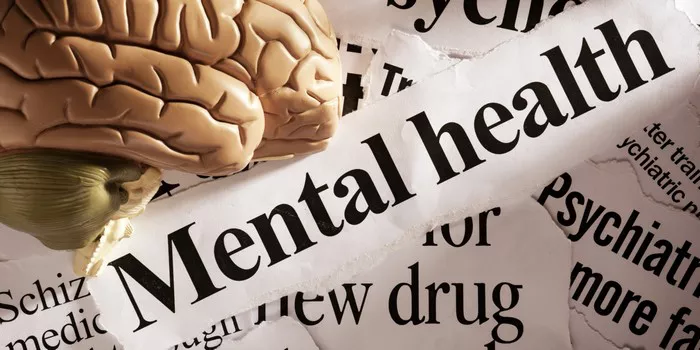Birthdays are typically associated with joy, celebration, and the opportunity to connect with loved ones. However, for some individuals, birthdays can evoke feelings of sadness, anxiety, or depression. This phenomenon, known as birthday depression, can be challenging to navigate and may have a variety of underlying causes. In this article, we delve into the complexities of birthday depression, exploring its potential causes and offering strategies for coping and support.
Defining Birthday Depression
Birthday depression is a term used to describe feelings of sadness, loneliness, or anxiety that arise in conjunction with one’s birthday. While it’s normal to experience a range of emotions on or around one’s birthday, birthday depression is characterized by persistent or intense negative feelings that significantly impact one’s mood and well-being.
Potential Causes of Birthday Depression
The causes of birthday depression can vary widely from person to person, and may be influenced by a combination of factors. Some potential causes include:
1. Unrealistic Expectations
Many people have high expectations for their birthdays, envisioning elaborate celebrations or special surprises from loved ones. When reality fails to meet these expectations, it can lead to feelings of disappointment or sadness.
2. Aging and Mortality
Birthdays often serve as markers of the passage of time, reminding us of our mortality and the inevitability of aging. For some individuals, birthdays may trigger existential fears or reflections on missed opportunities, leading to feelings of sadness or anxiety.
3. Social Isolation
For individuals who lack strong social support networks or have few close relationships, birthdays can amplify feelings of loneliness or isolation. The absence of friends or family members to celebrate with can exacerbate feelings of sadness or depression.
4. Past Trauma or Loss
Birthdays may serve as painful reminders of past trauma or loss, such as the death of a loved one or significant life events. For individuals who have experienced trauma or grief around their birthdays, the anniversary of these events can trigger difficult emotions.
5. Comparison to Others
In today’s age of social media, it’s easy to compare our own lives to the seemingly perfect lives of others showcased online. Seeing friends or acquaintances celebrate lavish birthdays or receive extravagant gifts can fuel feelings of inadequacy or envy.
6. Unresolved Emotional Issues
Underlying emotional issues, such as depression, anxiety, or unresolved trauma, can be exacerbated by the stress and expectations surrounding one’s birthday. Individuals with preexisting mental health conditions may be particularly vulnerable to experiencing birthday depression.
Coping Strategies for Birthday Depression
While birthday depression can be challenging to navigate, there are strategies and coping mechanisms that individuals can employ to manage their emotions and find support:
1. Manage Expectations
Recognize that it’s okay to have a low-key or low-pressure birthday celebration. Focus on realistic expectations and prioritize activities or traditions that bring you joy and fulfillment.
2. Practice Self-Care
Take time to prioritize self-care on your birthday. Engage in activities that nourish your body, mind, and soul, whether it’s enjoying a favorite meal, spending time in nature, or indulging in a relaxing spa day.
3. Reach Out for Support
Don’t hesitate to reach out to friends, family members, or mental health professionals for support if you’re struggling with birthday depression. Talking about your feelings and receiving validation and understanding from others can help alleviate feelings of loneliness and isolation.
4. Create Meaningful Rituals
Establish your own birthday traditions or rituals that hold personal significance for you. Whether it’s journaling, practicing gratitude, or engaging in acts of kindness, find ways to mark the occasion in a way that feels meaningful and authentic to you.
5. Limit Social Media Use
Consider limiting your exposure to social media on your birthday if it tends to trigger feelings of comparison or inadequacy. Remember that social media often presents a curated and idealized version of reality, and that everyone’s journey is unique.
6. Seek Professional Help
If birthday depression persists or significantly impacts your daily functioning, don’t hesitate to seek professional help from a therapist or counselor. Therapy can provide a safe space to explore and process difficult emotions, develop coping skills, and work through underlying issues contributing to birthday depression.
Conclusion
Birthday depression is a common but often overlooked phenomenon that can impact individuals of all ages. By understanding the potential causes of birthday depression and implementing strategies for coping and support, individuals can navigate their birthdays with greater resilience and self-awareness. Remember that it’s okay to experience a range of emotions on your birthday, and that seeking help and support is a sign of strength, not weakness. With self-compassion, self-care, and the support of loved ones, individuals can find meaning and fulfillment in celebrating another trip around the sun.
[inline_related_posts title=”You Might Be Interested In” title_align=”left” style=”list” number=”6″ align=”none” ids=”7090,7087,7084″ by=”categories” orderby=”rand” order=”DESC” hide_thumb=”no” thumb_right=”no” views=”no” date=”yes” grid_columns=”2″ post_type=”” tax=””]































